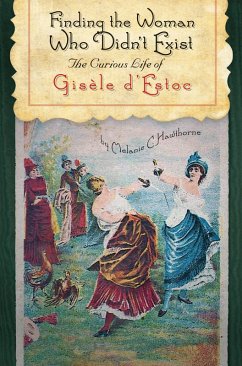Gisèle d'Estoc was the pseudonym of a nineteenth-century French woman writer and, it turns out, artist who, among other things, was accused of being a bomb-planting anarchist, the cross-dressing lover of writer Guy de Maupassant, and the fighter of at least one duel with another woman, inspiring Bayard's famous painting on the subject. The true identity of this enigmatic woman remained unknown and was even considered fictional until recently, when Melanie C. Hawthorne resurrected d'Estoc's discarded story from the annals of forgotten history.Finding the Woman Who Didn't Exist begins with the claim by expert literary historians of France on the eve of World War II that the woman then known only as Gisèle d'Estoc was merely a hoax. More than fifty years later, Hawthorne not only proves that she did exist but also uncovers details about her fascinating life and career, along the way adding to our understanding of nineteenth-century France, literary culture, and gender identity. Hawthorne explores the intriguing life of the real d'Estoc, explaining why others came to doubt the "experts" and following the threads of evidence that the latter overlooked. In focusing on how narratives are shaped for particular audiences at particular times, Hawthorne also tells "the story of the story," which reveals how the habits of thought fostered by the humanities continue to matter beyond the halls of academe.
Dieser Download kann aus rechtlichen Gründen nur mit Rechnungsadresse in A, B, BG, CY, CZ, D, DK, EW, E, FIN, F, GR, HR, H, IRL, I, LT, L, LR, M, NL, PL, P, R, S, SLO, SK ausgeliefert werden.

